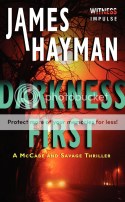
WELCOME JAMES BARNEY

JAMES BARNEY
James Barney is the critically acclaimed author of The Genesis Key. He is an attorney who lives outside Washington, D.C., with his wife and two children.
Connect with James at these sites:
Q&A with James Barney
Do you draw from personal experiences and/or current events?
— I definitely draw from personal experience. For instance, some of the action in the opening chapter of The Joshua Stone was inspired by my experiences as an engineering officer aboard a fast-attack nuclear submarine. The scenes in Russia were inspired by my visit to Moscow a few years ago. And the descriptions of particular buildings and locations in Washington, DC were all based on my personal observations.
Do you start with the conclusion and plot in reverse or start from the beginning and see where the storyline brings you?
— More of the latter. I have a rough idea where the story will go, and I generally know how it will end. But I let each chapter develop on its own and allow the story to change as necessary to keep it interesting and exciting.
Your routine when writing? Any idiosyncrasies?
— For me, it’s catch-as-catch-can. I write when I can find the time and have the inspiration. My favorite time to write is early in the morning when the house is quiet and my mind is clear.
Is writing your full time job? If not, may I ask what you do by day?
— I’m a lawyer by day.
Who are some of your favorite authors?
— Michael Crichton, Stephen King, Douglas Preston, Lee Child, Steve Berry, James Rollins, John Grisham, Scott Turow, and others.
What are you reading now?
— “Our Kind of Traitor” by John Le Carre’
Are you working on your next novel? Can you tell us a little about it?
— Yes. All I can say is it will be another exciting adventure for Mike Califano and Ana Thorne.
Your novel will be a movie. Who would you cast?
— Jennifer Lawrence, Bradley Cooper, Philip Seymour Hoffman.
Would you rather read or watch TV/movie?
— Depends on my mood.

ABOUT THE BOOK
READ AN EXCERPT
BOOK DETAILS:
Genre: Thriller/Suspense
Published by: William Morrow Paperbacks
Publication Date: 10/8/2013
Number of Pages: 416
ISBN: 978006202139PURCHASE LINKS:
If you’d like to join in on an upcoming tour just stop by our sites and sign up today!
Follow the Tour:
DISCLAIMER
I received a copy of this book, at no charge to me, in exchange for my honest review. No items that I receive are ever sold…they are kept by me, or given to family and/or friends.
ADDENDUM
I do not have any affiliation with Amazon.com or Barnes & Noble. I am an IndieBound affiliate. I am providing link(s) solely for visitors that may be interested in purchasing this Book/EBook.








































































































